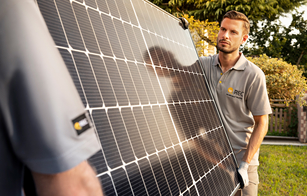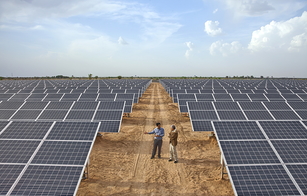Higher Power, lower Footprint – How to make a greater contribution by choosing solar panels more responsibly
With the ongoing political uncertainties, many countries around the world are looking to reduce their reliance on fossil fuel generated electricity as they acknowledge the increasing challenges of relying on coal and gas fired electricity and its association with global warming.
A study by REC Group has found that in order for solar energy to make a contribution towards limiting the global temperature increase to 1.5°C, we will need to install about 500 to 600 GW of new solar photovoltaic (PV) capacity on average per year for a decade. This is the equivalent of more than a billion solar panels every year.
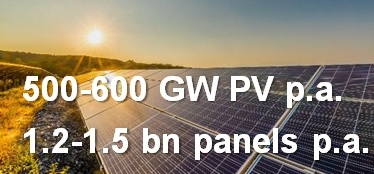
As we race towards installing more solar panels to harvest energy, the solar industry needs to ensure that solar panels do not pose a problem in the future while it provides a solution today.
The industry needs to consider how it can meet the challenges of the future through new product innovations that combine the development of higher efficiency solar panels with long-lasting performance and sustainable manufacturing practices.
Homeowners who want to play their part in mitigating climate change can choose responsibly made solar panels that will not only create a positive impact but also lower their environmental footprint.
Making more clean solar power for you with less
To harvest more solar energy from their panels, power density is a key metric for homeowners and businesses who want to make the most of their rooftop and optimize their contribution to the environment. Power density measures the amount of energy or power generated for each square meter of a solar panel and the higher the power density, the more powerful a solar panel is. Technologically advanced solar panels that are available on the market today should have an efficiency of more than 22 percent.
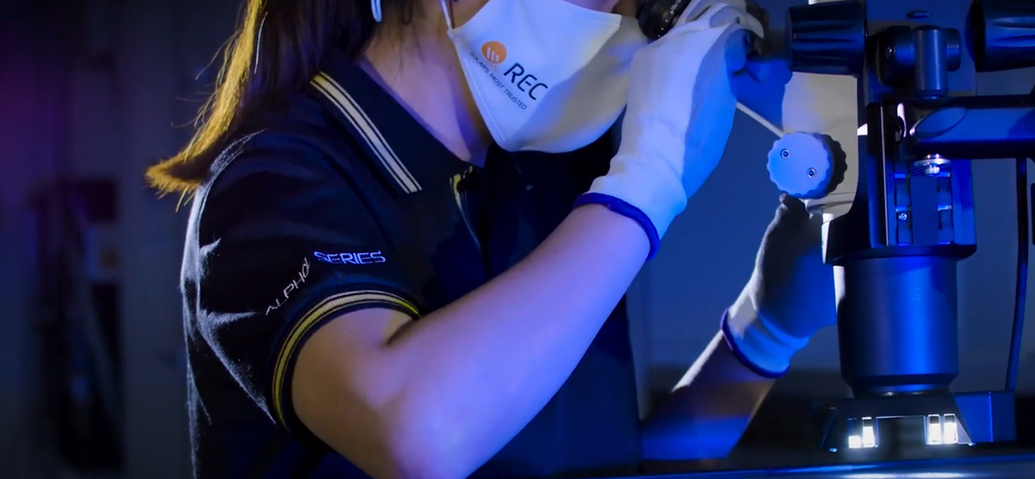
By choosing to install higher efficiency solar panels, less solar panels are needed to create a rooftop solar system. This reduces the number of resources needed without sacrificing on the amount of energy harvested. Not only have system owners benefitted through achieving two positive outcomes, but they have also offset more carbon emissions through this outcome.
Advanced technologies to unlock the full potential of your roof
Not all solar panels deliver the same level of power density and some of the technologies that are currently available include TOPCon, PERC and the most advanced solar panel technology available, Heterojunction solar cell technology (HJT).
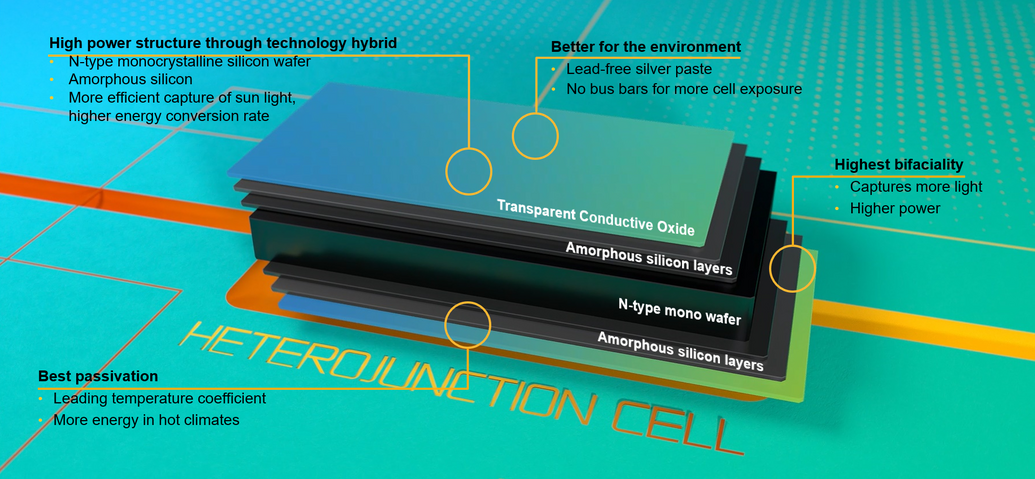
HJT unlocks the greatest potential for energy harvesting. Unlike TOPCon, which uses a single material for its solar cells, HJT cells combine the best of both worlds by using crystalline silicon and amorphous thin-film silicon. When used together, these materials create a more efficient way for sun light to be captured and electrons to be transferred. This results in a higher energy conversion rate potential which generates more solar energy for homeowners and businesses.
REC has been a pioneer of HJT which has a demonstrated track record in power density. It has been developing and manufacturing solar panels based on HJT since 2019. Not only has REC made a strong commitment towards developing HJT, it has also released four significant innovations of solar panels globally in the last four years using its Alpha HJT technology.
Long-lasting performance giving peace of mind for owner and the environment
Households and businesses want a reliable solar PV system to ensure their return on investment.
The top branded solar panels in the industry offer a guaranteed power performance of at least 92 percent at year 25. Other solar panels, mainly based on TOPCon, guarantee only around 89%. This translates into about 3,600 kWh of more power, which is the equivalent to the annual power consumption of an average three-person household in Germany. By choosing a solar panel that has a long-term performance guarantee, owners can be assured that they are making a positive impact on the environment, also in 25 years.
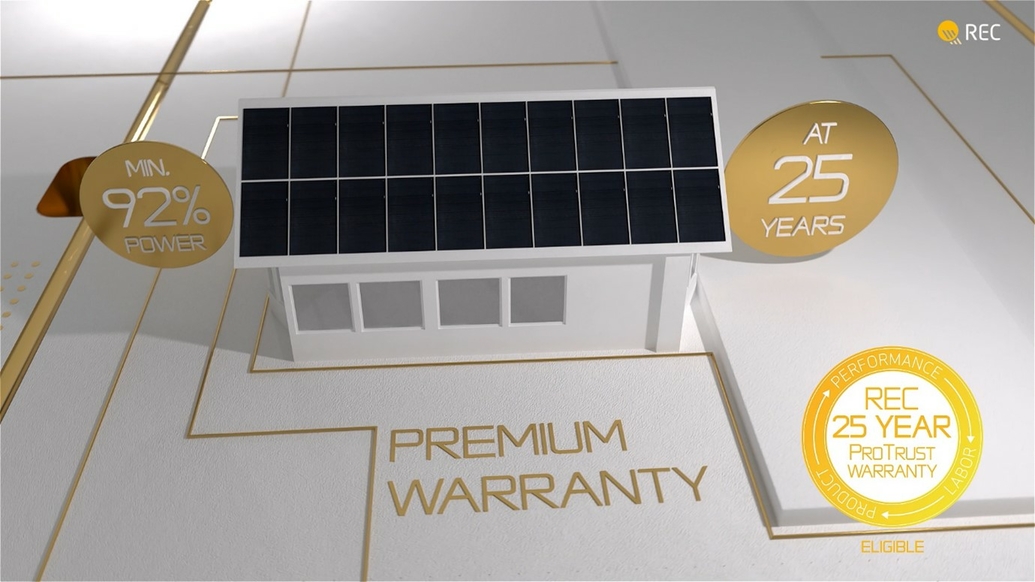
The carbon footprint of a solar panel
The manufacturing of solar panels is energy intensive. Homeowners and business who choose to make a positive environmental contribution need to consider metrics such as the Energy Payback Time and Carbon Footprint.
Solar panel manufacturers that are concerned about their own energy savings tend to claim an Energy Payback Time of less than one year for the solar panels they produce. As an alternative, they can provide an Environmental Product Declaration (EPD) to validate their footprint.
However, some manufacturers are invested in improving their environmental footprint. Besides having robust energy savings programs at their manufacturing facilities, these manufacturers share their energy consumption data transparently with their customers. REC is an example of a solar panel manufacturer that has combined high-efficiency innovations with sustainable manufacturing practices, a heritage it has continued since the business was founded in Norway more than 25 years ago.
At its cell and module production site in Singapore, REC has reduced its specific energy consumption (MWh per MW panel production) by 15 percent in 2022. This has resulted in a total CO2 emission savings of 2,900 tons in one year.
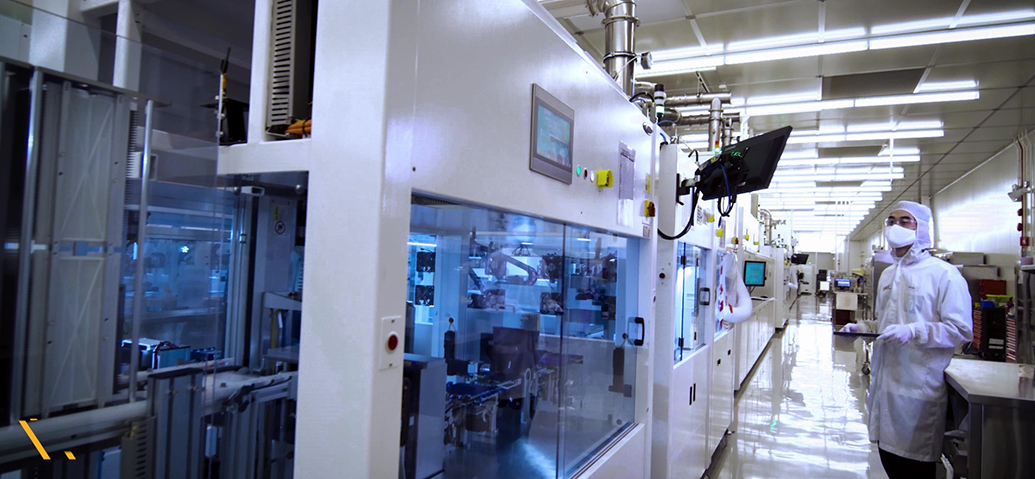
This is why REC believes it is important to consider the power density, longevity and the amount of energy that is used in the manufacturing process as part of a solar panel’s product development lifecycle. Designing a solar panel that has a longer lifespan which requires less resources to be used in the manufacturing process reduces our environmental impact. Homeowners and businesses who want to play their part in mitigating climate change can choose more responsibly made solar panels to achieve these outcomes.
See how REC is contributing towards a better tomorrow today: www.recgroup.com/csr
Learn more about REC’s award-winning Alpha Pure Series: www.recgroup.com/alpha

